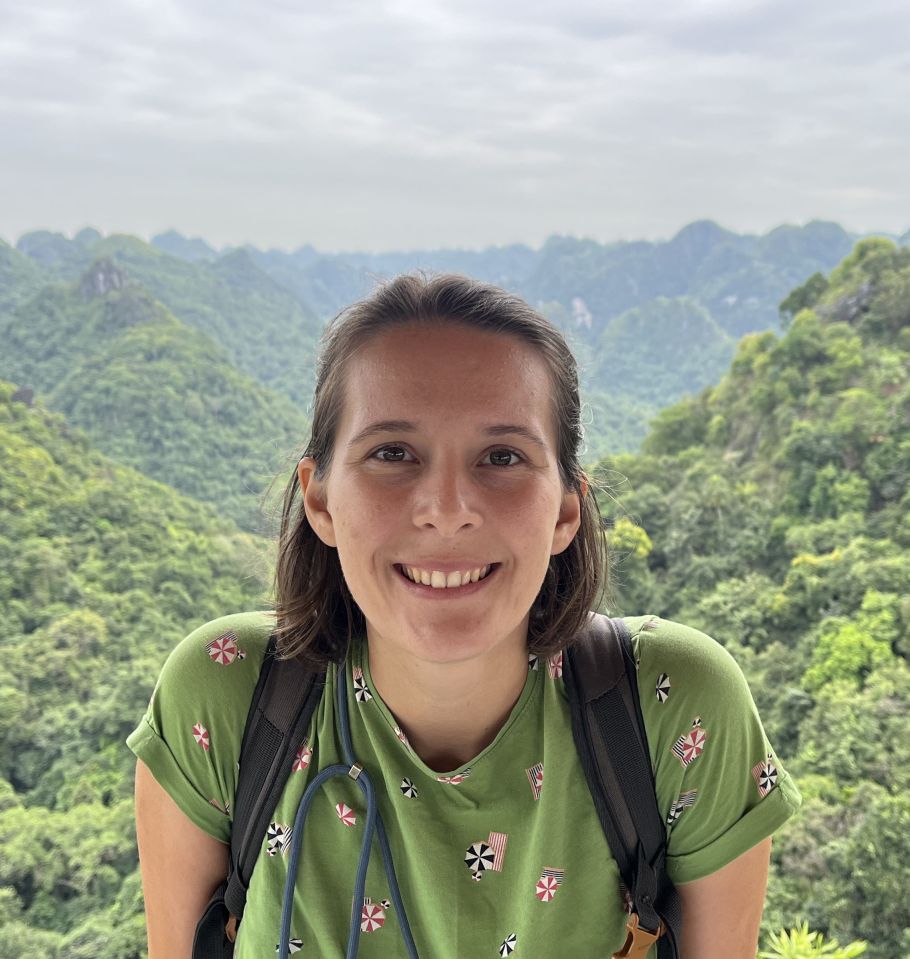I am an applied mathematician currently working as a Leopoldina post doc fellow in the research group Medical Physics and Technology at the department for Radiation Science and Technology, TU Delft.
My research is focused on improving radiation therapy planning by developing more efficient numerical methods and better models for uncertainty quantification. It is important to me to work on socially relevant topics in a sustainable and reproducible way. Below you can find a selection of my publications, talks and software projects.
News

01.09.-05.09. ENUMATH, Heidelberg
Back in Heidelberg - this time for ENUMATH 2025! I was happy to be invited to give a talk in Chinmay and Emil's Minisymposium on "Developments in Uncertainty Quantification for Kinetic Equations" and discuss our joint project.
...
The conference was also a great opportunity to chat with many former colleagues and aquaintances from Karlsruhe and Heidelberg, and put out my feelers a bit to what the hot topics are outside my immediate field of research.
Read more
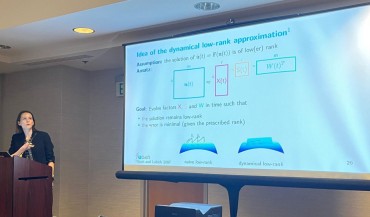
27.04.–30.04. M&C 2025, Denver
End of April I traveled all the way to Denver for the M&C (International Conference on Mathematics and Computational Methods Applied to Nuclear Science and Engineering) 2025. While this was the first time for me at a conference in this field, there were lots of interesting talks to listen to.
...
It was especially nice to meet so many people working on deterministic radiation transport problems and I feel like I was successful in communicating my work to a new, relevant audience.
Read more

17.02.-21.02. matRad User Meeting & Hackathon, Heidelberg
For its 10th anniversary, the developers of the open-source treatment planning toolkit matRad organized a user meeting in Heidelberg.
...
Despite currently not being a very active developer or user, I was happy to follow the invitation and visit my former colleagues at DKFZ. It was a great opportunity to get into touch with the community and chat with many computationally-minded researchers in radiation therapy.
Read more
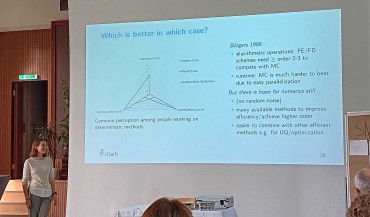
22.09.-25.09. SNuBIC retreat, Königswinter
I was happy to be invited as a guest speaker to the retreat of the SNuBIC research unit. There were plenty of interesting talks and lively discussions and
...
it was especially nice to have some more time to chat to old and new aquaintances than usually possible at bigger conferences.
Read more
Publications
Preprints
- A high-order deterministic dynamical low-rank method for proton transport in heterogeneous media, Aug. 2025
Pia Stammer, Niklas Wahl, Jonas Kusch, Danny Lathouwers
arXiv:2508.04484
- Low-rank variance reduction for uncertain radiative transfer with control variates, Jan. 2025
Chinmay Patwardhan, Pia Stammer, Emil Løvbak, Jonas Kusch, Sebastian Krumscheid
arXiv:2501.06125
, accepted for Proceedings of MCQMC 2024
- A Deterministic Dynamical Low-rank Approach for Charged Particle Transport, Dec. 2024
Pia Stammer, Tiberiu Burlacu, Niklas Wahl, Danny Lathouwers, Jonas Kusch
arXiv:2412.09484
, accepted for M&C 2025
2023
2021
- Efficient Uncertainty Quantification for Monte Carlo Dose Calculations Using Importance (Re-)Weighting
Pia Stammer, Lucas Burigo, Oliver Jäkel, Martin Frank, Niklas Wahl
Physics in Medicine & Biology
Software projects
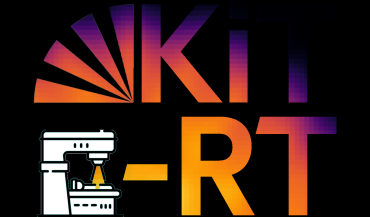
KiT-RT
https://github.com/CSMMLab/KiT-RT
Project together with Jonas Kusch, Steffen Schotthöfer, Jannick Wolters and Tianbai Xiao.
The KiT-RT (Kinetic Transport Solver for Radiation Therapy) framework is a high-performance open source
platform for radiation transport. Its main focus is on radiotherapy planning in cancer treatment. To enable
problem-specific method selection, the framework provides different deterministic solver types. This not
only facilitates treatment planning, but also provides tools to investigate various research questions in the
field of radiative transfer. This goal is supported by an easily extendable code
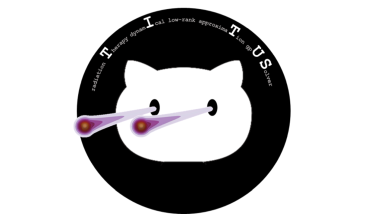
TITUS
https://github.com/CSMMLab/TITUS
Project together with Jonas Kusch.
The TITUS framework offers open source solvers for time and memory efficient deterministic proton and
electron dose calculations in 2D/3D. We solve the continuous slowing down approximation (CSD) to
transport equations using the dynamical low rank approximation. See [1] for a detailed description of the
methodology and some initial results for 2D electron transport. Functionalities of TITUS include collideduncollided
splitting methods, high-order time integration, high-order spatial discretizations and GPU
accelerations.
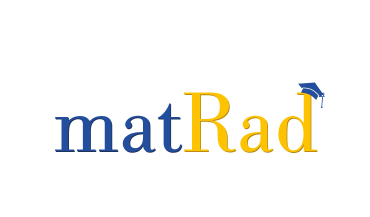
matRad
https://e0404.github.io/matRad/
Project developed and maintained within the research group Radiotherapy Optimization at the German
Cancer Research Center (DKFZ). During my time as an associated member of this research group I have
contributed to the project, especially to the photon Monte Carlo computations with TOPAS MC.
MatRad is an open source software for radiation treatment planning of intensity-modulated photon,
proton, and carbon ion therapy.
Presentations
Conference Talks
September 2025, ENUMATH, Heidelberg
Minisymposium: Developments in Uncertainty Quantification for Kinetic Equations
Talk: Multi-fidelity dynamical low-rank approximations for uncertainty quantification in radiation transport
April 2025, M&C, Denver
Session: Charged Particle Transport
Talk: A Deterministic Dynamical Low-rank Approach for Charged Particle Transport
July 2024, SciCADE, Singapore
Minisymposium: Dynamical Low Rank Approximation: From Theory to Applications
Talk: Multi-level dynamical low-rank approximations for stochastic problems in radiation therapy
March 2024, GAMM, Magdeburg
Minisymposium: Dynamical low-rank approximation
Talk: Multi-level dynamical low-rank approximation for grid-based radiation dose calculations
February 2024, Symposium on Sparsity and Singular Structures, Aachen
Minisymposium: Kinetic Equations
Talk: A hybrid dynamical low-rank approach for transport equations in radiation therapy
February 2023, SIAM CSE, Amsterdam
Minisymposium: Efficient Numerical Frameworks
for Kinetic And Related Models
Talk: Efficient Solution of the Linear Boltzmann
Equation for Radiation Therapy Using the Dynamical Low- Rank Approximation
September 2022, GIMC SIMAI Young, Pavia
Minisymposium: Efficient Numerical Frameworks
for Kinetic And Related Models
Talk: A robust collision source method for
rank adaptive dynamical low-rank approximation in radiation therapy
July 2022, MCQMC, Linz
Talk: Using importance sampling to speed up nonintrusive uncertainty quantification for Monte Carlo simulations
June 2021, PTCOG59, Online
Talk: Efficient uncertainty estimates in Monte Carlo dose calculation using importance re-weighting
Posters
June 2023, PTCOG61, Madrid
Time and memory efficient deterministic proton dose calculations using the dynamical low-rank approximation
April 2023, MMKT, Karlsruhe
Cost and memory efficient moment methods in radiation therapy and their open-source implementation
May 2022, ESTRO, Kopenhagen
PO-1728 Efficient modeling and quantification of timedependent errors in IMPT
Get In Touch
If you are interested in collaborating or have questions about my work don't hesitate to contact me.
-
Address
Mekelweg 15
2629 JB Delft
Building 50, Room: 1.01.030

